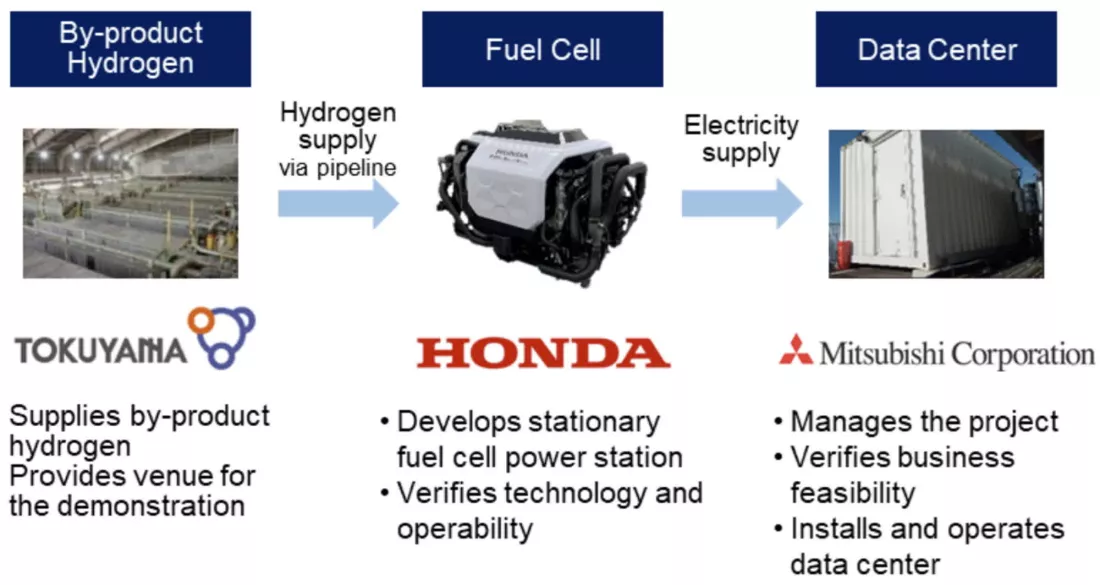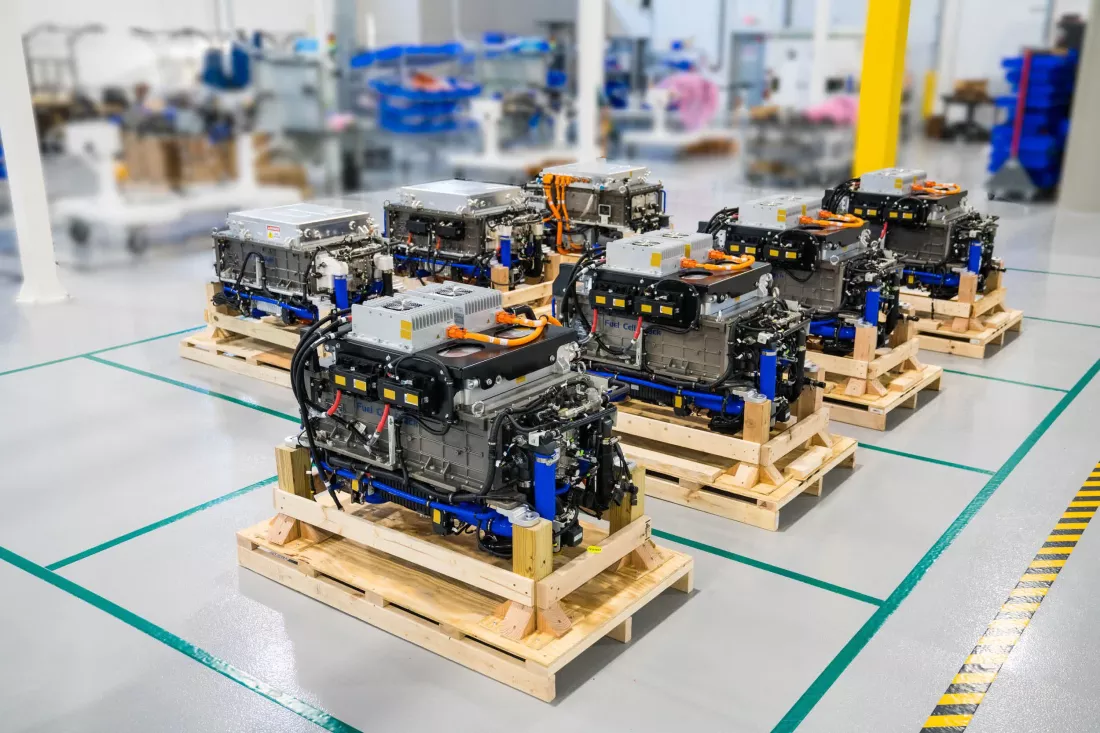A decarbonization experiment with reused fuel cells that will run for two years
In a nutshell: Fuel cells - used as an alternative energy source in the automotive industry - convert the chemical energy of a fuel, often hydrogen, and an oxidizing agent (oxygen) into electricity. Japan has a significant fleet of fuel cell electric vehicles (FCEVs) on its roads, something Mitsubishi plans to exploit in its latest experiment for an environmentally sustainable energy infrastructure.
Mitsubishi recently announced a joint demonstration for a new-generation data center, a plant designed to use a stationary fuel cell (FC) power station as its main energy source. The company will partner with Honda and Tokuyama Corporation, exploring the feasibility of an FC-based power source in the face of further increase in power demand for data centers crunching larger volumes of data.
The project will be held in the city of Shunan, Mitsubishi said, where Tokuyama has run an electrolysis plant since 1952. Tokuyama will provide the hydrogen extracted as by-product of its saltwater electrolysis business, while Honda will develop the power station by reusing fuel cells removed from its electric vehicles.
The innovative data center was proposed by the New Energy and Industrial Technology Development Organization (NEDO), a Japanese organization which promotes research, development and adoption of innovative hydrogen-based energy sources. The joint project should begin on March 31, running for two years until March 31, 2026.

FCEVs are a potential alternative to battery-powered vehicles, though they don't provide the same energy efficiency. Honda has already tested retired hydrogen fuel cells repurposed as a data center backup energy source in California, while the new Japan project aims to build a stationary power plant that could work both as a backup and a primary energy source.
Mitsubishi didn't provide any details about the data center infrastructure the company will manage in Shunan, so the amount of energy provided by the FC-based power plant is currently unknown. Hydrogen is considered a clean fuel as it only produces water as a by-product of a fuel cell's electrochemical reaction.
Commercially produced hydrogen is extracted from methane gas with an energy-intensive process based on fossil fuels, which is likely the same technology employed by Tokuyama in its saltwater electrolysis plant. Mitsubishi's project should at least be useful in demonstrating the feasibility of an effective integration of hydrogen and exhausted fuel cells into the energy business.
- Adenman
-

 1
1




Recommended Comments
There are no comments to display.
Join the conversation
You can post now and register later. If you have an account, sign in now to post with your account.
Note: Your post will require moderator approval before it will be visible.